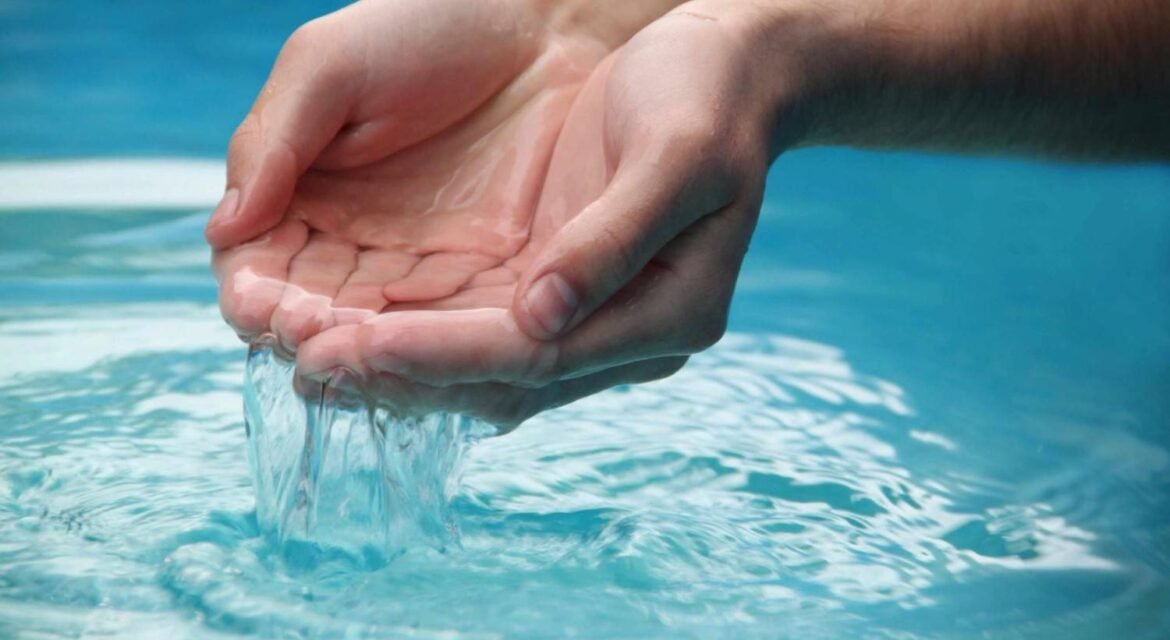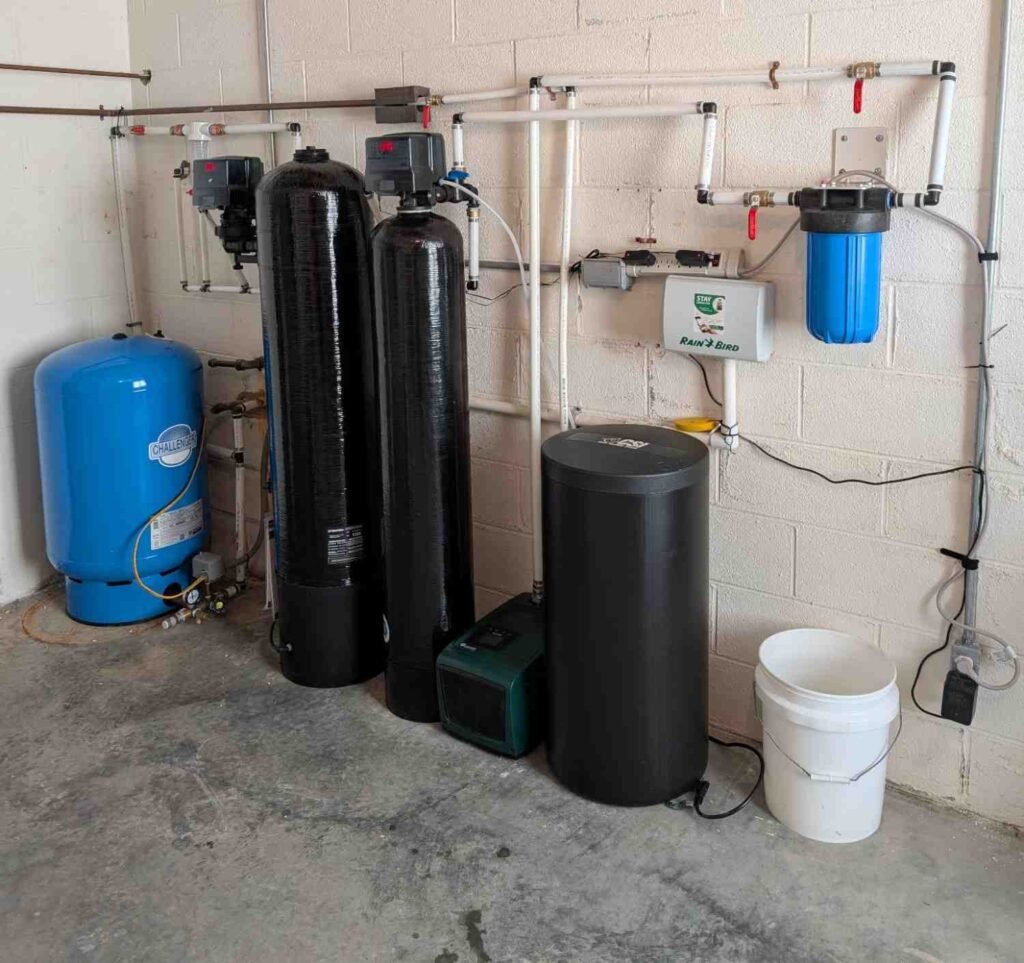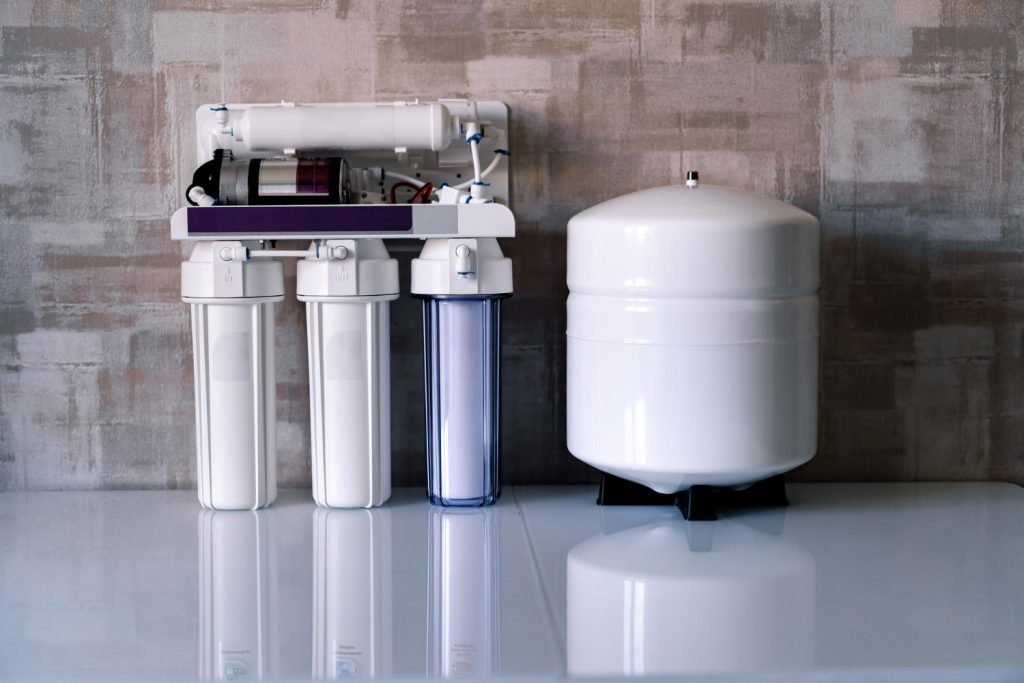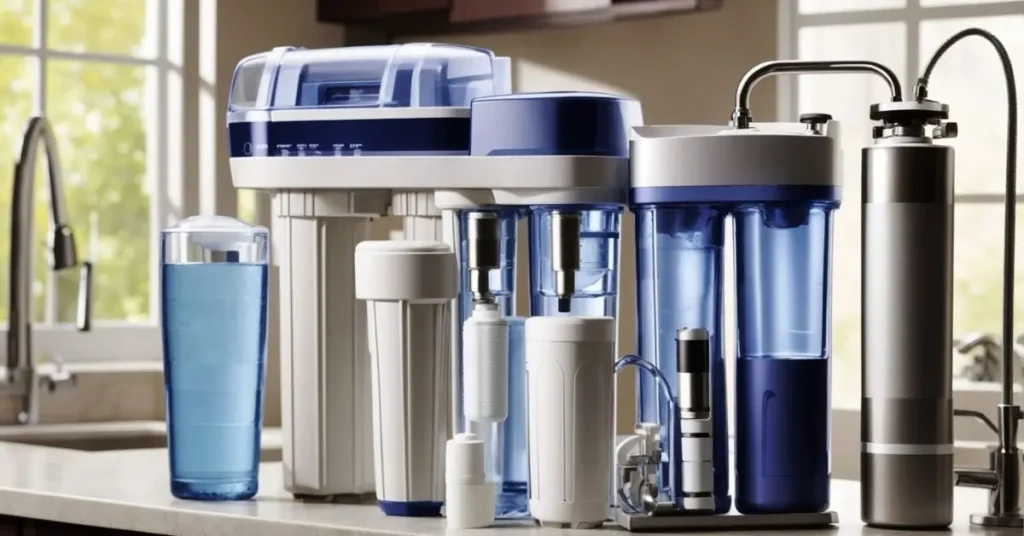
How Water Softening Systems Can Improve Kathmandu’s Hard Water Problems?
- Water Treatment Systems
- May 30, 2025

Why a Water Softener is Essential for Effective Hard Water Treatment
A majority of homes in Kathmandu have hard water, but few people know the extent to which it damages things. Hard water contains very high concentrations of minerals, calcium and magnesium. While these minerals do not directly damage your health, they can actually affect your plumbing, appliances, hair, and skin in the long term.
If you are living in Kathmandu, you must have noticed white spots on your dishes, non-lathering soap, or rough-feeling clothes. These are all signs of hard water. The problem is not merely cosmetic. Over time, the minerals in hard water build up inside your pipes and machines to form “scale.” This scale reduces water pressure, clogs up fixtures, and destroys equipment.
A Kathmandu water softener dissolves these hardness minerals with a process known as ion exchange. This turns your hard water into soft water, which is gentler on your home and you. It’s a solid choice for homes under siege from hard-to-shift limescale and soap scum.
Solve hard water issues with softeners and make a huge difference to your comfort, home maintenance costs, and even energy bills. So if you’re serious about hard water treatment, now’s the time to act.
Discover how our experts resolve all of your drinking water problems in Kathmandu Valley with certified tools and techniques, delivered straight to your home.
Exploring Kathmandu’s Unique Hard Water Treatment Needs
Kathmandu faces a special water quality challenge. The city’s water comes from a combination of sources—subsurface aquifers, rivers, and runoff from surface waters in the hills. The sources have elevated levels of natural minerals, primarily calcium and magnesium, which cause hard water.
During dry seasons when water consumption is high and surface run-off is low, mineral content is greater, and water becomes even harder. The situation is worse in certain locations within the city that possess older plumbing systems, more prone to mineral buildup.
Regular filtration systems will remove dirt and bacteria, but not hardness. That is where a water softener in Kathmandu will be useful. It softens hard water at the chemical level by substituting hardness ions with sodium or potassium ions.
This system is optimal for Kathmandu’s particular water profile. Either on municipal supply or well, softeners are a long-term solution for hard water problems. And used in conjunction with other filtering methods, such as UV sterilizers or carbon filters, it provides overall home water care.
It is beneficial to know the local environment. By choosing a system designed for Kathmandu water levels, you have consistent results year-round. With a water softener, you can finally enjoy cleaner water, longer-lasting fixtures, and lower maintenance costs.
Need for Water Softener in Kathmandu

The origin of hard water in Kathmandu is under your feet. The valley geology is rich with minerals-filled rocks, including dolomite and limestone. These rocks naturally release calcium and magnesium into groundwater. When such water flows to your taps, minerals go along with it.
Another factor is aging water infrastructure. Kathmandu’s pipe network is old and corroded in many areas, which increases the likelihood of mineral leaching. Combined with seasonal changes and varying water sources, residents can experience fluctuating hardness levels throughout the year.
So, how does a water softener in Kathmandu solve this problem? Through ion exchange. The softener contains resin beads that are impregnated with sodium ions. When hard water flows through, the magnesium and calcium ions are absorbed into the resin and sodium is released. This turns hard water into usable, soft water without altering its taste or smell.
The process is safe, chemical-free, and cost-effective. It’s also automated to the fullest extent—softeners self-regenerate with brine solution after some time or usage. This makes household water management easier and more efficient, especially for high mineral locations.
Installing a water softener also protects downstream purifiers and filters from corrosion, keeping them more efficient and longer-lasting.
Best Water Softening Benefits Around Your House
Shifting to soft water offers numerous concrete benefits around your house. Perhaps the biggest water softening benefit is in saving household appliances. Washing machines, water heaters, and dishwashers run better and longer on soft water.
You’ll also feel the difference on your skin and hair. Hard water leaves behind a sticky film that clogs pores and dries out your skin. It also makes shampoos and soaps less effective. After switching to soft water, many people report smoother skin, shinier hair, and fewer skin irritations.
Washing gets better, too. Detergent dissolves more evenly in soft water, making your clothes feel softer to the touch and look cleaner. Towels become fluffier, and colours do not fade as fast.
Household cleaning tasks get easier, too. Scrubbing away the mineral deposits on the faucet and the tile is gone. Soap scum in the bathroom becomes a thing of the past. Later, this translates into less time cleaning and fewer cleaning supplies purchased.
Aside from convenience, there’s also cost reduction. Your equipment lasts longer and requires fewer repairs. You consume less soap and detergent. And since soft water heats faster, you also save on your utility bills.
Learn How Softeners Save Your Plumbing Costs
Kathmandu pipes—especially in older houses—are prone to hard water damage. Scale dwindles the interior diameters of pipes, restricts flow, and clogs. Over time, it increases pressure within the system, creates leaks, and reduces the efficiency of water.
Learn how softeners protect your plumbing. A Kathmandu water softener eliminates the minerals that cause these problems. Water, as it runs through the softener, is “mineral-free,” so no more limescale in fittings or pipes.
One of the biggest dangers of hard water scale is hidden damage. The pipes will look fine on the outside, but internally are lined with thick deposits of calcium. This restricts the life of copper and steel pipes and even affects plastic plumbing if not treated.
Soft water, on the other hand, flows effortlessly. It does not react with pipe material, leading to less corrosion and an extended lifespan of your plumbing. Over time, soft water can even remove some of the scale deposits, offering partial replacement.
This renders softeners a preventative measure. Rather than spending thousands on new pipes or repeatedly having pipes repaired, install a softener and leave the damage in the past, where it will stay. It’s an intelligent step toward sustainable home water management.
Comparing Forms of Hard Water Treatment

Some methods exist for hard water treatment, but they don’t work exactly the same way, especially in Kathmandu. Let’s compare them.
- Reverse Osmosis (RO): Ideal for purifying water, but not in large amounts. RO systems waste a lot of water and don’t soften it without being supplemented with a softener.
- Magnetic or electronic conditioners: These are reported to “alter” water so minerals won’t stick, but the results can be variable. They don’t remove minerals and have poor scientific support.
- Sequestering agents or chelation: These add chemicals that are drawn to calcium, but they are typically used industrially, not at home.
- Ion-exchange water softeners: These remove hardness at the molecular level. They are tried, tested, and trusted. For a Kathmandu water softener, this is the crème de la crème.
Ion-exchange systems are compatible with Nepal’s water conditions. On high mineral loads, they perform well, ensuring that they can handle any flow rates as well as being low-maintenance. Additionally, they connect well with other systems such as UV filters, which makes them ideal for full-house purification solutions.
Low maintenance, performance, and cost compare poorly against ion-exchange softeners when it comes to suitability for use in the long run within homes in Kathmandu.
Installation and Maintenance Instructions for Your Water Softener
Installation of a water softener in Kathmandu is simple, but precise placement and installation are required. Most softeners are installed at the main water entry point so that all entering water in the house is treated.
For smaller homes or apartments, a compact unit can be installed near the kitchen or bathroom. In larger houses, a full-sized system should be placed where the water line enters the home, usually near the storage tank or pump.
A good plumber can handle the installation in 2–4 hours. Once installed, the system will run automatically, regenerating every few days depending on usage.
Maintenance is easy. You’ll need to:
- Monitor salt levels in the brine tank every month.
- Refill the softener salt when levels are low.
- Clean the brine tank every one to two years.
- Flush the resin bed periodically with a recommended cleaner.
These minutes extend your system’s lifespan and performance. With minimal effort, your home water care is smooth, efficient, and trouble-free.
Calculating Cost Savings and ROI
The majority of individuals do not want to spend on a water softener because of the initial investment. But if you calculate the long-term savings, the value is clear.
A typical water softener in Kathmandu would cost NPR 50,000 to NPR 80,000 to install. Maintenance every year, salt and electricity included, would be NPR 4,000 to NPR 6,000.
But here’s what you save:
- Less detergent: Save NPR 3,000 to 5,000 a year.
- Lower utility bills: Water heaters operate 20% more efficiently on soft water.
- Appliance repair/replacement: As much as NPR 10,000 in yearly savings by extending lifespan.
- Less plumbing maintenance: No costly replacement of pipes or clogging fees.
Total savings are over NPR 15,000 every year. Your system is paid for within 3 to 4 years of operation. Then it’s all savings. On top of this, think about the comfort, health, and cleanliness soft water brings, and the advantages of water softening are priceless.
SC Incorporated’s Premier Water Softener in Kathmandu

When it comes to water purification, SC Incorporated Pvt. Ltd. leads the way. We provide premium-quality water softeners in Kathmandu solutions suitable for Nepali residents. Our solutions are developed to suit local water conditions and are easy to maintain.
We proudly offer the Chanson Alkaline Water Ionizer, a USA No.1 brand validated by the US FDA and rated medical-grade. The machine produces safe high-pH water (up to 11.5) and low-pH water (down to 2.5) without chemicals.
Why Chanson?
- Save Money: Uses lower power with better performance.
- 100% Safe: No additional chemicals—pure ionized water only.
- Quality Assured: Each machine undergoes a 32-point inspection before shipping.
These features make it perfect for home families who focus on home water maintenance and health. Having a softener and a Chanson ionizer combined allows you to have the best of both worlds—alkalized water and softened water for maximum health, skin, and aging.
Choose SC Incorporated to protect your home, save money, and enjoy clean, safe water every day.
Conclusion
Kathmandu does experience water problems. But the solution is simple: a quality Kathmandu water softener can deal with most of them. From clogged pipes to parched skin to shattered appliances, hard water has its revenge in your home and on your body.
Upgrade with our water softening systems for smoother water, gentler skin, simpler cleaning, and saving money in the long run. From protecting plumbing to making life more convenient, the water softening benefits are truly life-altering. It’s the first line of defence against Kathmandu’s tough water conditions. With all these benefits, having a water softener in Kathmandu is an investment worth making.
SC Incorporated offers total solutions for Nepali needs. Call us today for a consultation or installation, or to learn how we can help you live better with soft water.
Frequently Asked Questions
1. What is hard water?
Hard water contains high levels of calcium and magnesium, which cause scale buildup and reduce soap efficiency.
2. Is hard water harmful to health?
It’s not dangerous to drink, but it can cause dry skin and damage home appliances.
3. How often should I add salt to my water softener?
Usually once a month, but it depends on your usage and the system size.
4. Does a water softener waste water?
Only a small amount is used during the regeneration cycle, typically 30–50 gallons.
5. Can soft water be used for drinking?
Yes, it is safe, though some people prefer adding a filter to adjust taste or sodium levels.
6. How long does a water softener last?
With proper maintenance, a good unit can last 10–15 years.
7. Can I install it myself?
Professional installation is recommended to ensure optimal performance and warranty coverage.

